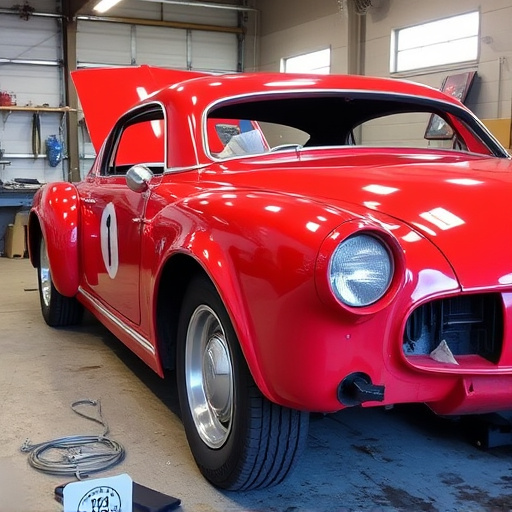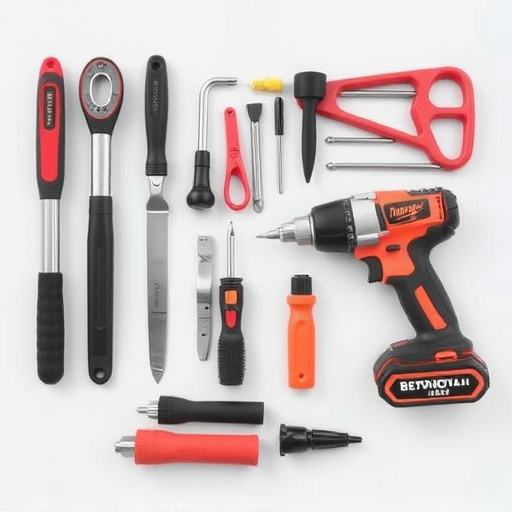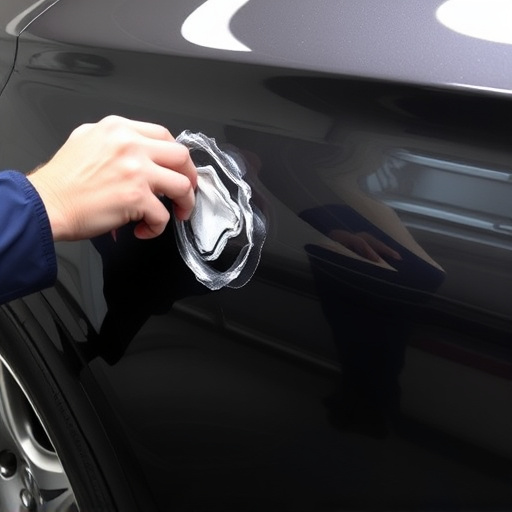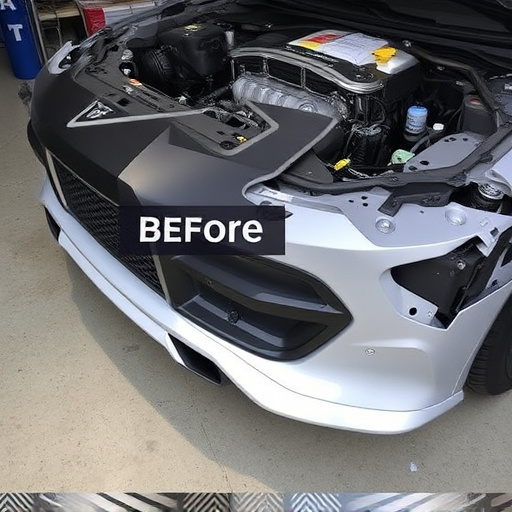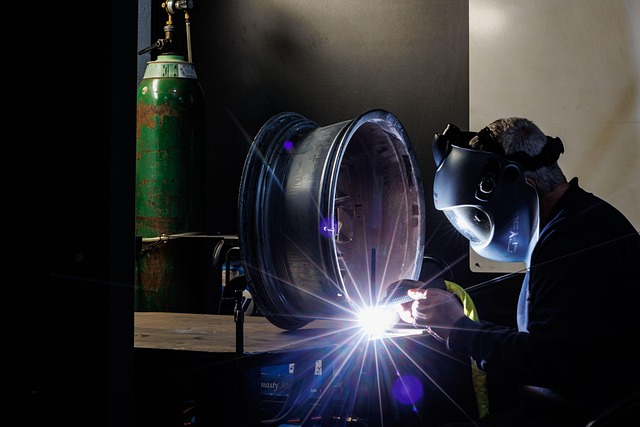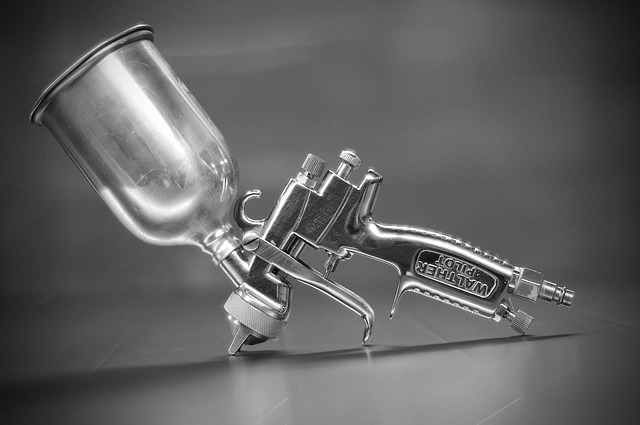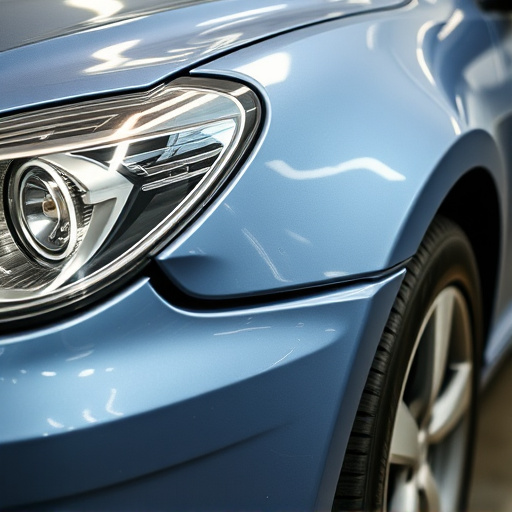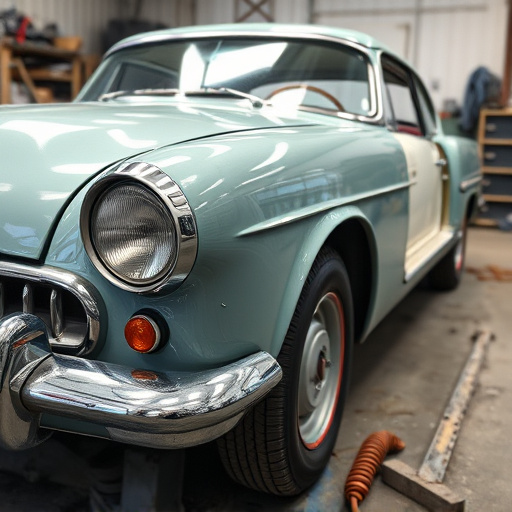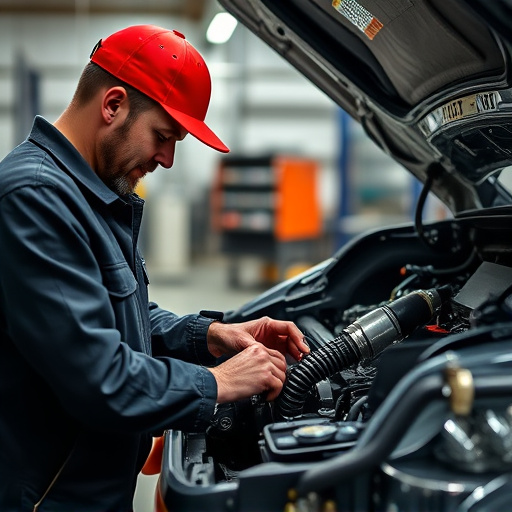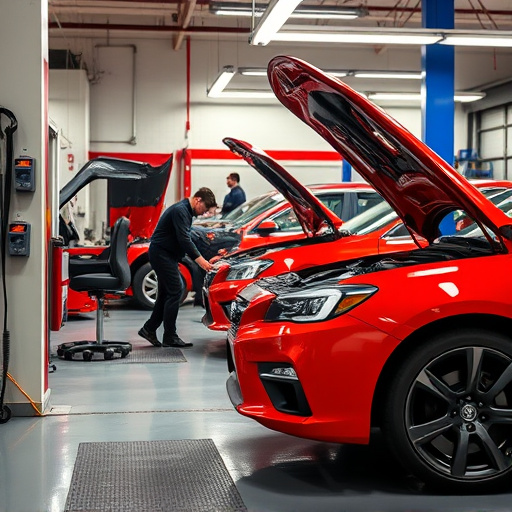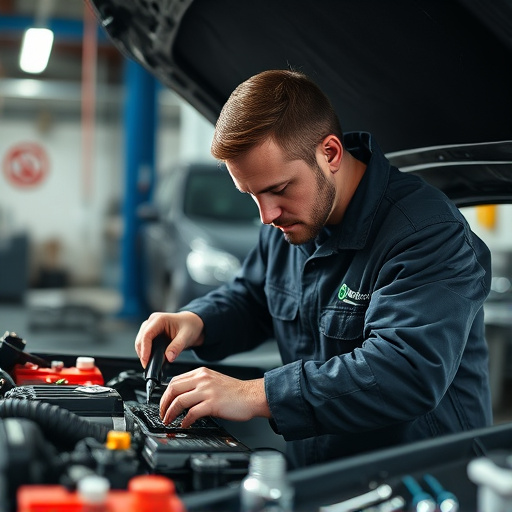Lightweight construction materials like aluminum composites transform automotive repair, especially in Mercedes-Benz repairs, enhancing fuel efficiency and environmental sustainability. Aluminum panel repair specialists face unique challenges from modern vehicles' complex geometry but benefit from corrosion resistance and malleability. Efficient repairs require specialized skills, advanced techniques, precise equipment, quality preparation, and an understanding of aluminum's properties to maintain structural integrity and aesthetic value.
Lightweight construction materials have revolutionized building techniques, offering enhanced efficiency and sustainability. This trend has significantly impacted industries like architecture and roofing, particularly in the use of aluminum panels. For aluminum panel repair specialists, understanding these materials’ unique properties is crucial. This article explores the challenges and benefits of repairing lightweight aluminum panels, providing best practices to ensure efficient and effective fixes.
- Understanding Lightweight Construction Materials
- Challenges and Benefits for Aluminum Panel Repairs
- Best Practices for Efficient and Effective Repairs
Understanding Lightweight Construction Materials
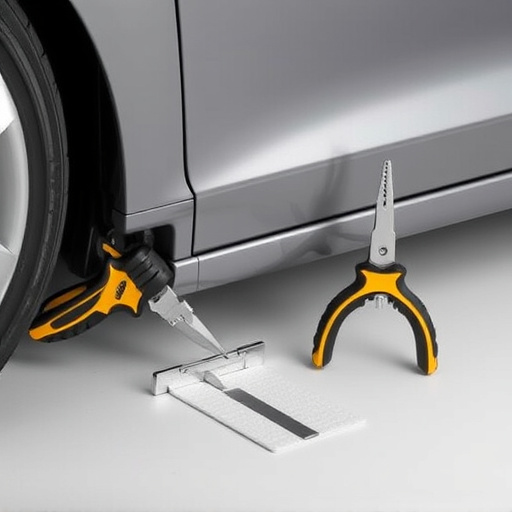
Lightweight construction materials have revolutionized the automotive industry, and their impact on aluminum panel repairs is significant. These materials are designed to reduce vehicle weight, enhancing fuel efficiency and overall performance while also making them more environmentally friendly. In the context of aluminum panel repair specialists, understanding these materials is crucial.
Automotive manufacturers increasingly use lightweight composites, alloys, and innovative designs in vehicles like Mercedes-Benz repairs, focusing on durability and safety. When a vehicle undergoes a collision or requires autobody repairs, these lightweight components may be more challenging to work with than traditional, heavier metals. Aluminum panel repair specialists need to be adept at handling such materials, ensuring precision and structural integrity during the repair process.
Challenges and Benefits for Aluminum Panel Repairs
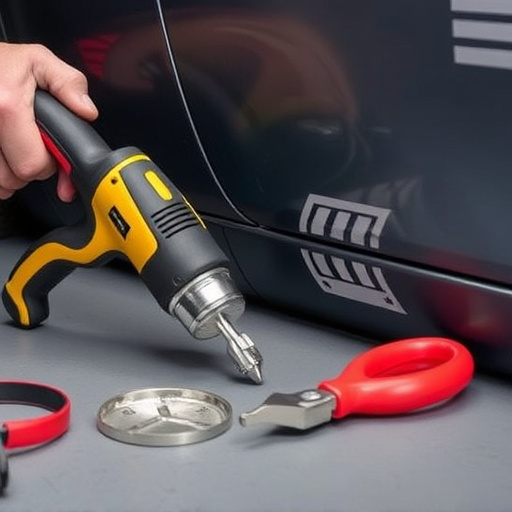
Aluminum panel repairs present both challenges and significant benefits for auto body shops and their clients. One of the primary difficulties lies in the unique properties of aluminum, which can be sensitive to damage during the repair process. This metal is known for its lightweight construction, making it a popular choice in modern vehicle manufacturing, especially in the automotive industry’s pursuit of improved fuel efficiency. However, this very characteristic also means that small dents or dings can create complex geometric deformations, requiring specialized skills and equipment from an aluminum panel repair specialist to ensure precise restoration.
On the other hand, lightweight construction offers several advantages when it comes to repairs. Aluminum is inherently corrosion-resistant, which is crucial for structural integrity over time. This property eliminates the need for frequent repairs in comparison to steel panels, often a common occurrence in auto body shops catering to older vehicles or those with damaged fender repairs. Additionally, aluminum’s malleability allows for more creative and precise restoration techniques, enabling auto repair shops to offer state-of-the-art services tailored to modern vehicle needs.
Best Practices for Efficient and Effective Repairs
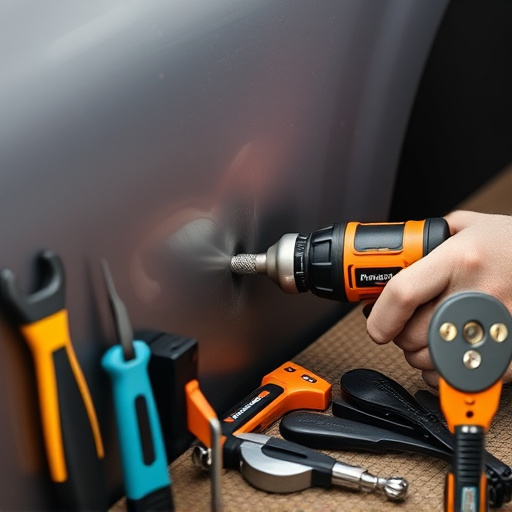
When it comes to efficient and effective aluminum panel repairs, best practices involve a combination of specialized skills and advanced techniques. Aluminum panel repair specialists should be equipped with the knowledge to handle the unique properties of this material, ensuring precise and durable fixes. This includes understanding the specific types of damage, such as dents, scratches, or creases, and selecting the right tools and methods for each case.
For instance, using specialized equipment like precision lasers or advanced welding techniques can ensure minimal disruption to the panel’s integrity while achieving a seamless finish. Additionally, an aluminum panel repair specialist should prioritize quality over speed. Proper preparation, including surface cleaning and de-greasing, is essential to prevent future issues. This meticulous approach ensures that repairs are not just temporary fixes but contribute to the long-term preservation of luxury vehicles or even those in collision repair services, maintaining their aesthetic value and structural integrity.
Lightweight construction materials are transforming the way we approach aluminum panel repairs, offering both challenges and significant advantages. By understanding these dynamics, aluminum panel repair specialists can master efficient and effective repair practices. Embracing innovative techniques and materials ensures top-notch results, enhancing the longevity and aesthetic appeal of structures that rely on aluminum panels.
